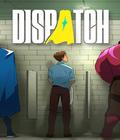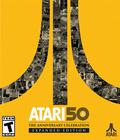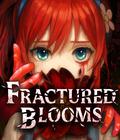
Genre: Action/RPG
Publisher: Konami
Developer: Kojima Productions
Release Date: February 6, 2007
 When Boktai for the Game Boy Advance was first announced, everyone thought it was such an innovative idea: Harness the actual sun's rays to power your in-game solar gun. When it came down to it, however, not many people wanted to go out of their way to play the game outside. Once everyone got home from work or school, the sun was going down anyway, so the times you could play the game were extremely limited. However, once you look past that initial turn-off (for some), you have yourself a pretty entertaining vampire-slaying game. How do you overcome this? Simply take out the solar sensor and work within an in-game day-and-night cycle, and you have yourself Boktai's successor, Lunar Knights.
When Boktai for the Game Boy Advance was first announced, everyone thought it was such an innovative idea: Harness the actual sun's rays to power your in-game solar gun. When it came down to it, however, not many people wanted to go out of their way to play the game outside. Once everyone got home from work or school, the sun was going down anyway, so the times you could play the game were extremely limited. However, once you look past that initial turn-off (for some), you have yourself a pretty entertaining vampire-slaying game. How do you overcome this? Simply take out the solar sensor and work within an in-game day-and-night cycle, and you have yourself Boktai's successor, Lunar Knights.
In Lunar Knights, you control two young heroes who are on a quest to rid the world of vampires and their totalitarian control. Each with their own motives, they work together toward their ultimate goal. Lucian harnesses the power of darkness in his Dark Sword, while Aaron is the apprentice gunslinger chosen to wield the sun's energy in his Solar Gun. Both of them must destroy the paraSOL which blocks out all of the sunlight and defeat the vampires behind its creation.
Since you don't actually control both characters simultaneously, you press the Select button to switch between the two heroes. Each character plays a little differently and will become useful in his own way. Lucian is obviously great for close combat because of his sword and his powerhouse fighting abilities. When you press Y repeatedly, he will perform a three-hit combo, and it will become more advanced once you level up his weapon. Aaron, on the other hand, can lock on using L and shoot enemies with his Solar Gun; you will mostly use Aaron to hit switches and baddies that Lucian cannot reach.
Aaron and Lucian both start off with their respective elements of light and dark, but throughout the game, you acquire terrenials which attribute different elements to your weapons such as ice, fire, wind, and earth. Using these deplete your energy meter, however. These terrenials will become important in solving puzzles and will give you a significant advantage once you learn which enemies have a weakness against certain elements.
In Lunar Knights, another key part in combat is the trance gauge. As you become damaged or cause damage, the gauge is filled, and once it is full, you can press a button on the touch-screen to use a trance attack. The type of attack will depend of which terrenial you currently have equipped. Most of the elementals will use touch-screen commands, such as drawing a circle around the enemy to attack it and cause colossal damage.
However, if you use the trance button while equipping a character's respective power (dark or light), he will transform into either Dark Lucian or Sol Aaron. Pressing B repeatedly will cause your character to latch onto the enemy and attack multiple times (while draining either life as Lucian or energy as Aaron). Pressing Y will result in a powerful burst attack. While the combat is only slightly better than the Boktai series, it still comes off as very repetitive and could use some improvement.
You progress through Lunar Knights by going through each dungeon, leveling up, defeating the boss, and then purifying him. In the Boktai games, once you defeated the boss, you were required to drag his coffin all the way back to the beginning of the dungeon in order to purify it. This go-round, the developers have actually modified the purifying process so that it's not so frustrating. Once you kill the vampire, he is locked up in a coffin, and you have to take him through space in a shoot-'em-up level controlled with the stylus. You touch and drag the spaceship to move it around and tap the enemy ships to shoot them. Once you reach the end of the level, he is purified in an elaborate interstellar cleansing device.
Each dungeon is reached by navigating through a central world map and simply tapping on the place you want to go. In addition to dungeons, you can visit inns, shops, the bank, and most importantly, Sheridan's Mansion, where you can use the junk parts you found or bought to upgrade your weapons. This is critical to advancing in the game because your weapons gain extra abilities when they've been improved. For example, Aaron's Solar Gun, Knight, can eventually use a charge blast once it gets leveled enough.
Also, once you unlock the elemental terrentials, you can use the Mansion to change the climate. Let's say there is an area you need to cross, but water is blocking your path. Change over to an arid climate, and that water will evaporate. Switching climates will be imperative to solving certain puzzles in some of the later dungeons.
Lunar Knights definitely tries to stray away from the negative bias set by the Boktai series. In addition to the title change — it's still called Boktai in Japan — the main characters' names have been altered. Moreover, the original Boktai titles focused more on stealth and puzzles, whereas Lunar Knights has a heavier focus on action. The only stealth involved here is blowing into the microphone to lure enemies to a certain area.
However, Kojima did not forget his loyal Boktai fans. If you still own Boktai or its sequel, you can insert it into the GBA slot of the Nintendo DS to use the solar sensor to power your weapons instead of relying on the in-game weather. This is a nice feature, since the feeling of actually influencing the game with the sun was what drew me to Boktai in the first place.
While the main quest is fairly short — 10 hours at most — a lot of replay value has been packed in to keep you coming back. Once you beat the game, you can play through it again in New Game +, play through a Boss Rush mode , and discover new quests throughout the map. Just because you've rid the world of vampires once doesn't mean your adventure is over.
Lunar Knights has the best presentation of any Boktai game yet. The levels are set with nice jazz music, and there are quite a few amazing animated cut scenes that put you right into the story. Unfortunately, aside from the space battles, the in-game graphics don't look much better than its predecessors.
The solar sensor may have been a huge turn-off for many gamers, but Kojima took a hint and removed it from Lunar Knights. What you are left with is a very fun vampire-slaughtering game that doesn't lose any of its charm (especially if you still use a Boktai game for a solar sensor). This title is definitely worth checking out for anyone who ever wanted try Boktai but refused to step outside into the blinding light of the sun.
Score: 8.6/10














































